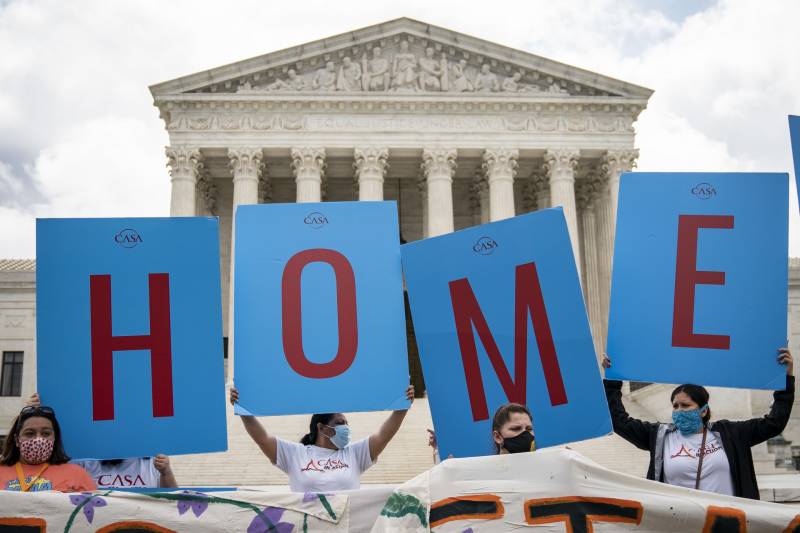Updated July 17, 2020, 2:30 p.m. PST:
A federal judge ruled Friday that the Trump administration must accept new applications for the Deferred Action for Childhood Arrivals program from young undocumented immigrants who never before had DACA’s protection.
Following last month's Supreme Court decision that the administration’s attempt to end the program was unlawful, the judge in Maryland said DACA must be restored to its status before President Donald Trump moved to end it in September 2017.
That opens the door for more than 300,000 unauthorized immigrants brought to the U.S. as children to apply for DACA’s two-year work permit and protection from deportation. New applicants would join the nearly 650,000 current DACA holders, who are entitled to renew their protections.
The ruling was welcomed by California Attorney General Xavier Becerra, who led a coalition of states in suing the federal government to preserve the program.
“From the Supreme Court down, the courts have made it clear: DACA stands, and now its doors are open to new Dreamers to apply,” Becerra said in a statement. “I urge all Dreamers to enter DACA."
Original Story:
Kassandra Merlos, 24, is ready to apply to the federal government for a work permit and protection from deportation under Deferred Action for Childhood Arrivals, or DACA, something she’s been barred from for almost three years.
The UC Riverside student decided to try for DACA after a U.S. Supreme Court ruling last month preserved the program, which benefits undocumented immigrants brought to this country as children. She had intended to apply in the fall of 2017, she said, but the Trump administration rescinded the protections.
“It would help me so much because not only I could work and provide for myself, but I could help my parents as well financially,” Merlos said, who has lived in California since age 3. “I've been struggling, not being able to work.”

